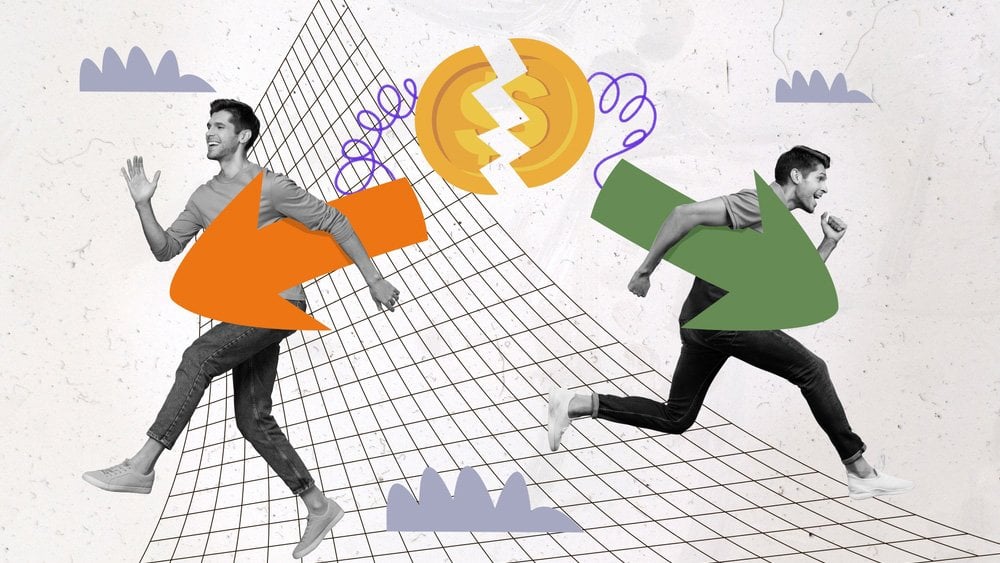Watch the video of Techonomy’s recent crypto session.
The value of one bitcoin has more than doubled to $11,200 since its low in mid-March. That is just one of many signs the blockchain economy (aka “crypto”) continues to evolve and roil finance and tech. Here’s another: this week JPMorgan Chase took equity in a hot blockchain-focused applications company called ConsenSys. The deal also involved ConsenSys taking over Quorum, a “private” blockchain the giant bank originally developed for itself. The concept of blockchains, initially invented as a record-keeping mechanism for bitcoin, may prove the most historic and world-changing aspect of what started when bitcoin was unveiled in 2008.
Techonomy hosted Lex Sokolin, ConsenSys’ co-head of global fintech, and Jalak Jobanputra, a veteran venture capitalist who focuses especially on blockchain-related investments, for this roundtable session called “Tech + Blockchain Economy: The Internet of Value and Money.” Sokolin, who was quoted widely in coverage of the JPMorgan deal, has written for Techonomy and is a clear-eyed explainer of an industry that often feels opaque. Jobanputra spoke on our stage two years ago on a panel entitled “Blockchain, Beyond Bitcoin” at Techonomy NYC 2018.

For many in crypto, the locus of new sorts of innovation is Ethereum, which is what ConsenSys creates technology for. Says Sokolin: “Ethereum is interesting because it’s not just a blockchain, it’s also a computer. So you can run that computer and that software can generate virtual goods, whether they are games or liabilities between people or some ‘hash’ which connects to a JPEG or a piece of digital art.” The Ethereum “computer” is in fact a way to create a virtual network of many many computers globally that run the Ethereum code. Part of the way it works is by rewarding the so-called “miners” who contribute their computers to this process with Ether, a virtual currency not unlike bitcoin.
One thing that kind of system makes possible is a fast-growing sort of banking and commerce called decentralized finance, or DeFi. It’s what Sokolin spends much of his time working on at ConsenSys. Here’s why Jobanputra says she’s excited by DeFi: “It is disintermediating banks and exchanges. Everything becomes peer-to-peer via smart contracts–like executing a buy or sell order without anybody ordering it. That’s super exciting.”
For most mortals, a significant percentage of what I’ve written thus far is befuddling, or demands more definition than I have slowed my prose here to insert. And I’ve probably made at least one error, because explaining things exactly right about crypto when you’re not an expert is damnably difficult. Feel free to tell me about any errors. But for all the complexity, there is an enormous amount for us to discuss. This session was rich and informative.

Here are a few more tidbits from my earlier conversations with Sokolin (S) and Jobanputra (J). To hear more from both of them, be sure to watch the video above.
S: “If Web 2 is the internet of data, then Web 3 is the internet of value and money. It’s like a mirror you’re holding up to yourself. Blockchain can affect many things: geopolitical power and sovereignty, money, countries, citizenship, and mathematics and computer science.”
J: “There have been lots of interesting conversations around central bank digital currencies. As central banks, can we be in more control by digitizing our currencies? China is doing that in a big way. It could enable direct currency trading, because you could set the terms of the exchange rate and transact directly. Right now most foreign currency transactions go through the dollar.”
S: “In a blockchain world, you have your stuff. The tech is so cool because the asset is part of the network, and there is no way to duplicate it. And it’s fully auditable from the start. A blockchain is a full data set at the start of the transaction, and permanent forever. Most of the economic activity on blockchain today is around blockchain-native assets–things that are not in the real world but have been made from the blockchain, like bitcoin or ether.”
J: “These are not user-friendly apps. And in my view some regulation will come out of it. It’s similar to initial coin offerings (ICOs) when the SEC first wasn’t paying attention. Now it is.”
S: “The tie to the real world in all this is super real, but it’s really hard. You do need the legal system. But the number of people who are conversant in the legal system and also in crypto is very few.”
J: “BitPesa, now called AZA, uses bitcoin as a money transfer tool for Africa. When the dollar was in demand and it was very hard to get ahold of dollars this year, they had an increase in business. They do a lot of B2B and multinational work. We were one of their first investors. This is the first time with a spike in dollar demand you could definitely see that having alternative was key. Now some businesses are staying on the platform as a result.”















